Among the many tasks on a foreigner’s checklist in the Netherlands, ensuring good oral health might not always be at the top. However, much like the picturesque canals and historic windmills are integral parts of Dutch landscapes, so is maintaining good dental hygiene pivotal for overall well-being.
This article aims to guide you through the intricacies of finding and visiting a dentist in the Netherlands. Whether you’re an expat, a student, or here for any other reason, the importance of understanding the dental system can’t be overstated.
Key Takeaways
- The Dutch dental system prioritizes both preventative and responsive care, ensuring quality oral health for its residents.
- English-speaking dentists in the Netherlands can be sourced through platforms like Zorgkaart Nederland, expat directories, and recommendations from the expat community.
- Making an appointment is straightforward, with most clinics offering both online and direct call booking options.
- Dental costs in the Netherlands are regulated, and while many payment methods are accepted, tipping isn’t customary in dental settings.
- For dental emergencies, contact your dentist first or seek out 24/7 emergency dental clinics in major cities.
- Daily oral care, understanding local products, regular check-ups, and a balanced diet are key to maintaining oral health in the Netherlands.
Understanding the Dutch Dental System
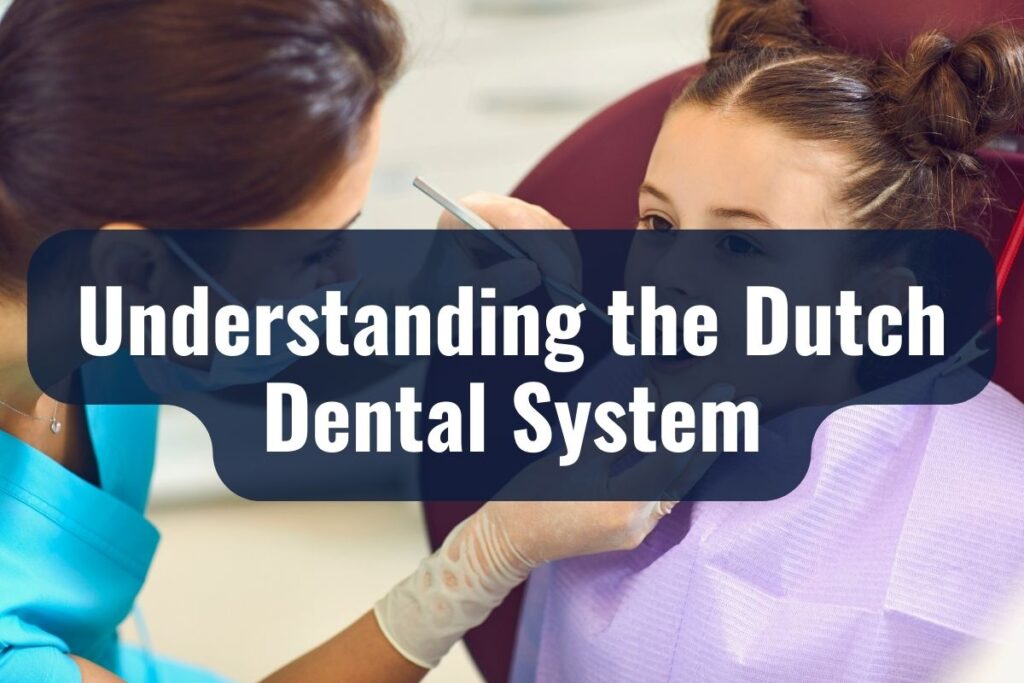
When in the Netherlands, it’s beneficial to have a grasp of the Dutch dental system to ensure you get the best care possible. While it might initially seem unfamiliar, understanding its basic structure and nuances can make your dental experience smoother and more comfortable.
How the Dental System Works
The Dutch take oral health seriously. Most residents schedule regular check-ups, at least once a year, to ensure their teeth and gums are in optimal condition. Preventive care is emphasized, and you’ll find that Dutch dentists prioritize regular maintenance over reactive treatments.
Dental care for children under the age of 18 is fully covered by basic Dutch health insurance. This means that standard procedures such as check-ups, fillings, and fluoride treatments come at no additional cost for minors.
For adults, while regular health insurance might offer some coverage, specific dental insurance packages are also available. These packages are designed to offset the costs of more comprehensive treatments.
Insurance Coverage for Dental Care
Insurance is a cornerstone of the Dutch healthcare system. Here’s what you need to know about dental coverage:
Basic Health Insurance
Every resident in the Netherlands is legally required to have at least basic health insurance (basisverzekering). While this insurance covers a wide range of medical treatments, its dental coverage for adults is limited. Typically, it might cover emergency dental care or specific surgeries, but regular check-ups and treatments may not be included.
Additional Dental Insurance
To bridge the gap left by basic health insurance, many opt for additional dental insurance (aanvullende tandartsverzekering). Depending on the package chosen, this can cover regular check-ups, orthodontic treatments, and more comprehensive procedures. However, premiums vary, and it’s crucial to read the terms and conditions to understand what’s covered.
It’s advisable to evaluate your oral health needs and choose an insurance package that aligns with them. While some might find the basic coverage sufficient, those requiring regular treatments or more extensive procedures might benefit from additional dental insurance.
Finding an English-Speaking Dentist
Effective communication is the foundation of any positive healthcare experience. For foreigners in the Netherlands, seeking an English-speaking dentist can significantly simplify consultations and ensure they’re informed about their oral health. Here’s a guide to help you find an English-speaking dentist, ensuring clear communication and peace of mind during your visits.
The Significance of Clear Communication
Understanding your oral health condition, the treatments you might need, and post-care instructions are paramount for effective dental care. For those not fluent in Dutch, an English-speaking dentist can bridge the communication gap. This ensures that you can ask questions, understand recommendations, and feel confident in the care you’re receiving.
Recommended Platforms and Websites
To assist you in your search for an English-speaking dentist, several platforms can be invaluable:
Zorgkaart Nederland
Zorgkaart Nederland is the largest independent rating platform for Dutch healthcare. While primarily in Dutch, it allows patients to review and rate their healthcare providers. You can filter your search for English-speaking dentists or check reviews mentioning English proficiency.
Dental Associations
The Dutch Dental Association (NMT) maintains a directory of dentists. While it doesn’t filter by language, it’s a reliable source of registered dental professionals.
Word-of-Mouth and Expat Communities
Sometimes, the most trusted recommendations come from personal experiences. Engaging with the following can provide invaluable insights.:
- Local expat groups or meet-ups
- Online forums or social media groups dedicated to foreigners in the Netherlands
Fellow expats or long-term visitors often share recommendations or relay their experiences, helping you make an informed choice.
Making an Appointment
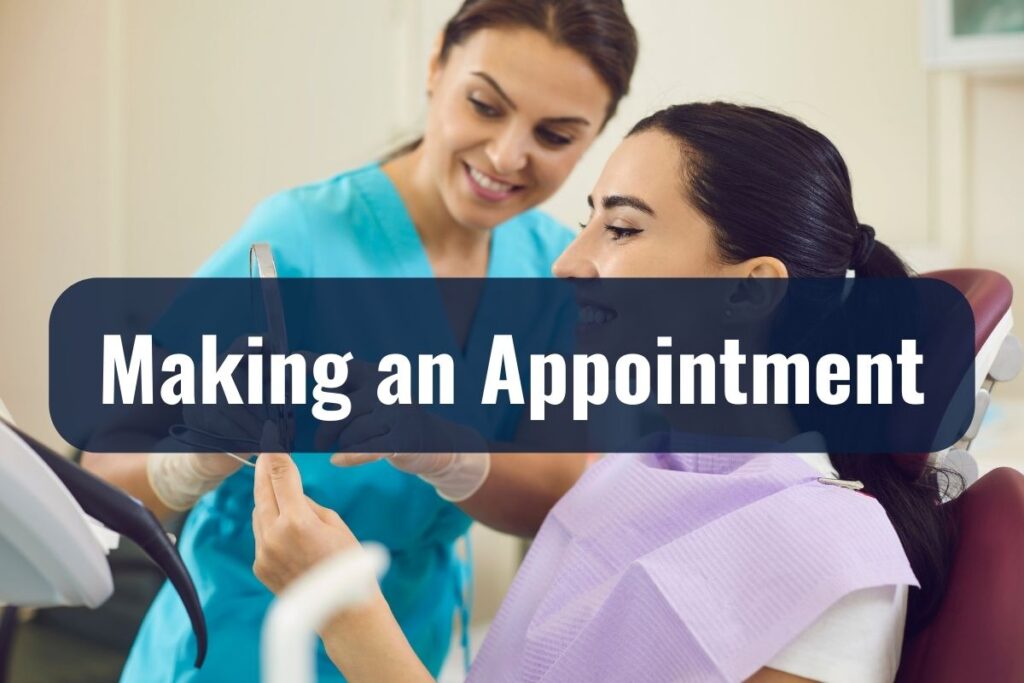
Taking that first step to ensure your oral health in the Netherlands means making a dental appointment. But how does one go about it, especially when unfamiliar with the local practices? Let’s walk you through the typical procedures to help you confidently book your dental visit in the Netherlands.
The Booking Process
While every dental clinic might have its own specific process, here’s a general approach to making an appointment:
Contact Method
Many modern dental clinics in the Netherlands have embraced online booking systems, allowing you to choose a suitable date and time. However, calling the clinic directly remains a widely used and efficient method, especially if you’re looking for a specific service or have questions.
Preferred Date and Time
When reaching out, it’s helpful to have a few preferred dates and times in mind. Dutch dental clinics often have business hours similar to other establishments, typically from 9 a.m. to 5 p.m. on weekdays. Some might offer evening appointments or limited hours on Saturdays.
Provide Essential Details
First-time appointments usually require you to share basic personal information. This might include your name, date of birth, contact details, and insurance information.
What to Expect During Your First Visit
Walking into a dental clinic for the first time can be a bit nerve-wracking, especially in a new country. Knowing what to anticipate can put your mind at ease:
Documentation
Upon arrival, you may need to fill out a medical history form. This will cover any allergies, previous dental treatments, and current medications. If you’ve chosen an English-speaking dentist, such forms will likely be available in English.
Consultation
Your first visit might primarily be a consultation. The dentist will assess your oral health, discuss any concerns, and recommend further treatments or procedures if necessary.
Dental Phrases
While you may have opted for an English-speaking dentist, understanding a few basic Dutch dental phrases can be handy. Here are a couple to get you started:
- “Tandarts” – Dentist
- “Afspraak” – Appointment
Costs and Payment
When it comes to dental care, understanding the associated costs and payment methods is crucial. In the Netherlands, the transparency and structure of dental pricing can make it easier for foreigners to navigate their expenses. Let’s explore the financial aspects of visiting a dentist in this European nation.
Overview of Average Dental Costs
Dental costs in the Netherlands are regulated by the Dutch government. This means that prices for standard dental treatments are consistent across the country. However, the actual amount you pay can depend on several factors:
Type of Treatment
Basic procedures like consultations, cleanings, and fillings come with fixed prices. More complex treatments like root canals, crowns, or orthodontic procedures will naturally be priced higher.
Insurance Coverage
As discussed earlier, the extent of your insurance coverage can significantly impact your out-of-pocket expenses. While children under 18 receive full coverage for most treatments, adults might need additional dental insurance to reduce costs.
Methods of Payment Commonly Accepted
The Netherlands offers a variety of payment methods, making transactions smooth for locals and foreigners alike.
Debit/Credit Cards
Most dental clinics accept major international debit and credit cards. It’s always a good idea to check in advance, especially if your card belongs to a less common network.
Bank Transfers
Some clinics might send an invoice post-treatment, allowing you to transfer the payment directly from your bank account.
Cash
While cash is accepted in many places, the trend is increasingly moving towards cashless payments due to convenience and security reasons. If you prefer to pay in cash, ensure the clinic accepts it beforehand.
Tipping Etiquette
In the Netherlands, tipping in medical or dental settings is not common practice. Professionals in the healthcare sector are not typically tipped for their services. Therefore, there’s no need to consider additional tipping costs when budgeting for your dental visit.
Emergency Dental Care
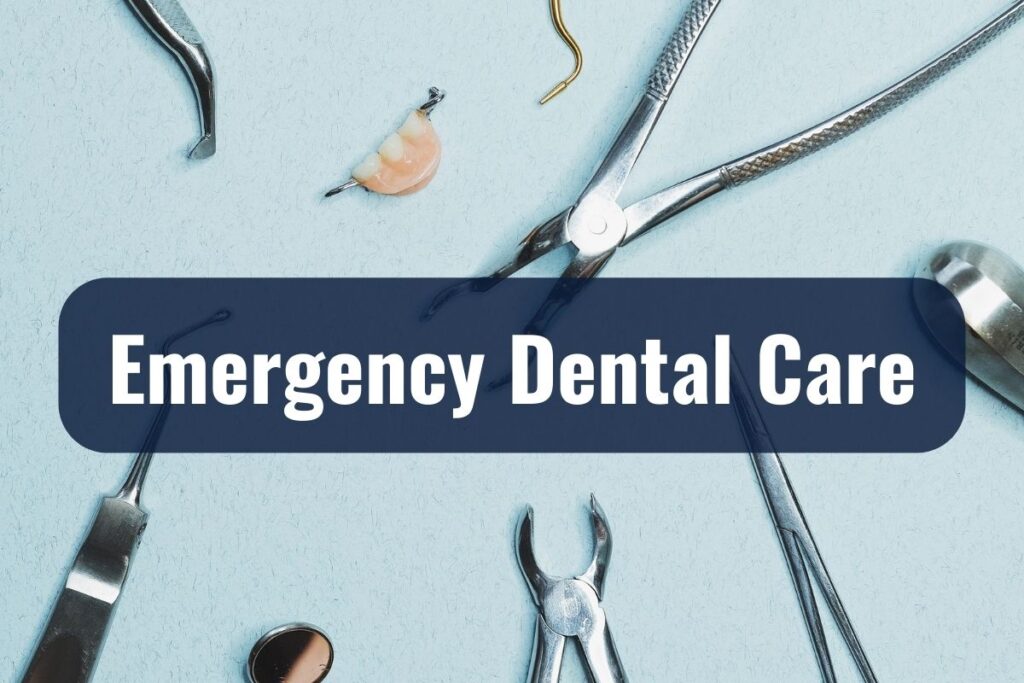
Dental emergencies can be both unexpected and distressing, especially when you’re away from home. In such critical moments, knowing where to turn and what steps to take can be invaluable.
In the Netherlands, the healthcare system is well-equipped to address emergency dental situations. Here’s what you should know if faced with a dental crisis:
Recognizing a Dental Emergency
Before delving into where to go and what to do, it’s important to understand what qualifies as a dental emergency:
| Dental Symptoms | Possible Indications |
| Severe Toothache or Pain | Underlying issue needing immediate attention |
| Broken or Knocked-Out Tooth | Trauma, urgent treatment needed |
| Swollen or Infected Gums | Possible infection, immediate care necessary |
| Bleeding that Doesn’t Stop | Uncontrollable oral bleeding, seek help |
Severe Toothache or Pain: A sudden, intense toothache that doesn’t subside might indicate an underlying issue that needs immediate attention.
Broken or Knocked-Out Tooth: Trauma that results in a broken or dislodged tooth should be treated promptly to maximize the chances of saving the tooth.
Swollen or Infected Gums: Swelling, especially when accompanied by pain or pus, can be a sign of an infection requiring urgent care.
Bleeding that Doesn’t Stop: If you experience uncontrollable oral bleeding, it’s imperative to seek emergency help.
Where to Go and What to Do
If you believe you’re facing a dental emergency:
Contact Your Dentist
If you’ve already established a relationship with a dentist in the Netherlands, call them first. They may offer emergency services or guide you to the nearest emergency dental clinic.
Emergency Dental Clinics
The Netherlands has specialized dental clinics that offer 24/7 emergency services. These clinics are equipped to handle urgent dental situations and can provide immediate care.
Hospital Emergency Rooms
In situations where a specialized dental clinic isn’t accessible, heading to the nearest hospital‘s emergency room can be an option, especially if the injury involves more than just dental trauma.
Taking Care of Your Oral Health in the Netherlands
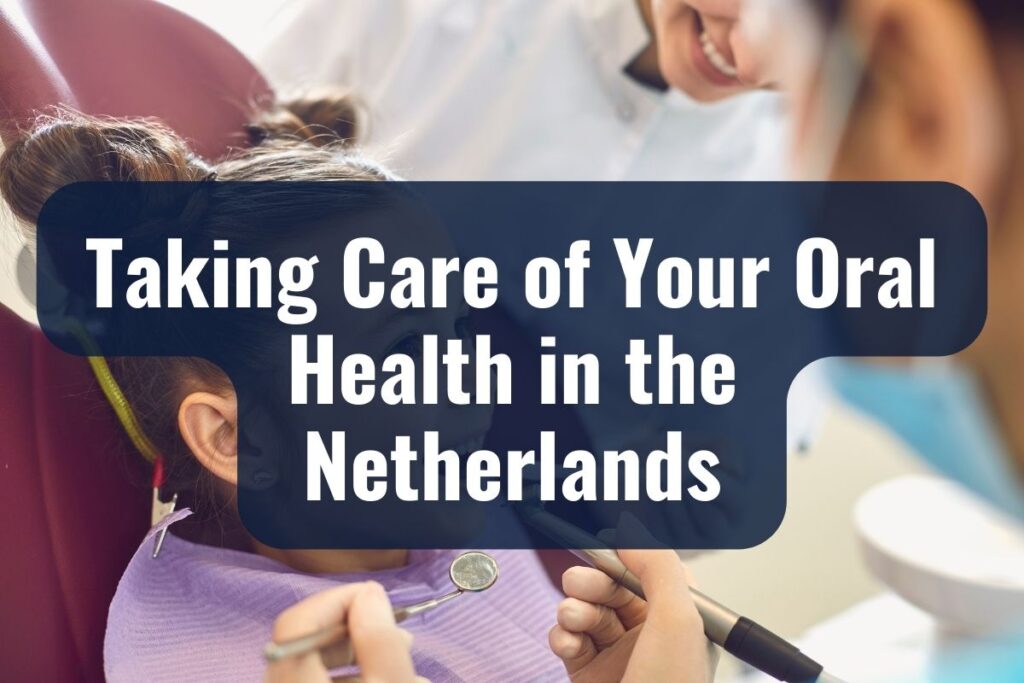
While accessing dental services is essential, so is maintaining a consistent oral hygiene routine. As the saying goes, “prevention is better than cure,” and the same holds true for dental care.
Whether you’re in the Netherlands for a short stint or a prolonged stay, establishing and maintaining healthy dental habits will serve you well. Here’s a guide to ensure your smile remains radiant while experiencing the Dutch way of life.
Daily Dental Routines
Just as you would anywhere else, maintaining daily oral care routines is pivotal:
Regular Brushing: Use a fluoride toothpaste and brush at least twice a day. Electric toothbrushes are popular in the Netherlands and are known for their efficacy.
Flossing: Ensure you floss daily. Flossing aids in removing food particles and plaque from places where your toothbrush might not reach.
Mouthwash: Consider incorporating an antiseptic mouthwash into your routine to kill bacteria and freshen your breath.
Understanding Local Products and Brands
The Netherlands offers a wide range of dental care products:
Toothpaste: Brands such as Sensodyne, Parodontax, and Elmex are commonly found on Dutch shelves. Fluoride toothpaste is standard, but if you have specific needs, like toothpaste for sensitive teeth, those are readily available too.
Toothbrushes: Apart from global brands, consider exploring local brands that might offer unique features tailored to Dutch consumer preferences.
Regular Dental Check-ups
Frequency: As a preventive approach, most Dutch people visit their dentist for a check-up at least once a year. It’s a good practice to adopt, ensuring any potential issues are caught early.
Professional Cleanings: Apart from check-ups, consider scheduling professional cleanings. This helps in tartar removal and offers a thorough cleaning that daily brushing might miss.
Diet and Dental Health
The Dutch diet, while delicious, contains items that can be sugary, like stroopwafels or drop (licorice). Moderation is key.
Limit Sugar Intake
Be mindful of sugary snacks and drinks. Ensure you rinse your mouth or brush your teeth after consuming them.
Calcium-rich Foods
Dairy products like cheese, which are abundant in the Dutch diet, are great for strengthening teeth. Include them in your meals for both taste and dental benefits.
Stay Hydrated
Drinking water not only benefits your overall health but also helps in rinsing away food particles and preventing dry mouth, which can be harmful to teeth.
In conclusion, while the Netherlands offers top-notch dental care services, your first line of defense against dental issues is a robust at-home care routine. By adopting the preventive approach favored by the Dutch and integrating good dental practices into your daily life, you can ensure your oral health remains in pristine condition during your stay in this enchanting country.



